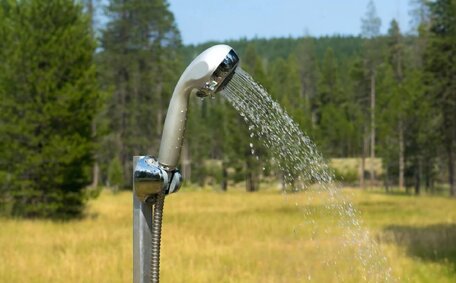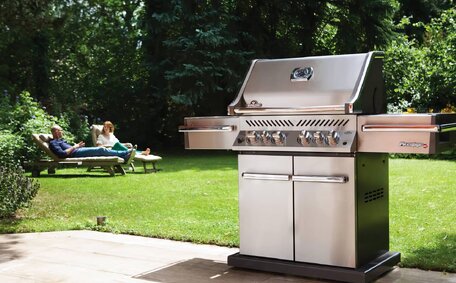Is Bleach Effective at Unclogging Drains?
While some homeowners in Peakhurst, Sydney hope that bleach can effectively clear drain clogs by dissolving hair and soap scum, it’s important to weigh up the risks before using it.
Bleach can help break down organic matter like hair, food, and soap scum over drain maintenance periods. However, when comes to addressing your clog, it is often not strong enough to immediately clear tough clogs on its own. It also does not dissolve inorganic materials like grease or minerals that can cause stubborn drain blockages.
It’s crucial to avoid mixing bleach with other drain cleaners or ammonia as this can produce toxic fumes. Bleach can also damage metal pipes and corrode plastic pipes when used excessively on blocked drains. The caustic nature of bleach and its limitations in the ability to unclog drains make it unsafe for septic systems as well.
Bleach can be useful for small blockages, but often proves inadequate for more severe drain issues. We recommend using mechanical drain cleaners like drain snakes, plungers, or calling a professional Peakhurst plumber for tough clogs instead of pouring bleach down drains.
How Does Bleach Interact with Clogs?
Homeowners should be aware that the highly reactive chlorine in bleach can eat through and dissolve various materials. Chlorine in bleach can break down the chemical bonds of organic matter within a clog when they come into contact.
Nonetheless, bleach alone may not be potent enough to swiftly dissolve persistent debris causing severe clogs. It works gradually to break down the clog over hours or days. Bleach also doesn’t interact with inorganic mineral deposits that can cause a stubborn clog there in your drain.
Always rinse the drain with water after using the bleach solution to prevent pipe corrosion.
Apply bleach cautiously to your drains, using it mildly and infrequently to avoid damage.
Combining bleach with acid-based chemical drain cleaners creates toxic chlorine gas, an example of how DIY solutions for drains can go awry. Ammonia reacts with bleach to form hazardous chloramines. So bleach should never be mixed with other cleaning agents.
Although bleach can dissolve organic clogs, its effectiveness is limited, especially when used in sinks. For severe or inorganic clogs, especially to unclog kitchen sinks, using a mechanical drain snake or calling a professional Peakhurst plumber is a faster and safer solution.
Benefits and Risks of Using Bleach
Using bleach to unclog drains can be beneficial but also carries risks that homeowners must consider.
Used properly, bleach can sanitise drain pipes and eliminate bacteria due to its strong disinfectant properties. The chlorine in bleach also breaks down hair soap scum, grease, and other organic materials that cause clogs, demonstrating how effective a drain can be kept over time. This can provide short-term relief for minor drain blockages.
Alternatively, employing a plunger or baking soda and vinegar is safer for unclogging your drains, as using bleach carries significant safety hazards.
Bleach can damage metal pipes through corrosion and weaken plastic pipes if used too aggressively or frequently.
Combining bleach with other chemicals like acids or ammonia creates toxic fumes, so it should never be mixed with other cleaning agents. Such combinations are extremely hazardous.
Although infrequent, minor amounts of bleach can clear small drain clogs, it usually cannot dissolve persistent inorganic deposits. For severe blockages in commercial drain systems, one would use a mechanical drain snake or contact a professional plumber for a more reliable solution.
Overall, the dangers tend to outweigh potential benefits of pouring bleach down drains. Seek alternative methods before turning to bleach, and use extreme care to avoid pipe damage or chemical injuries if attempting to utilise bleach as a DIY drain cleaner.
When Bleach Should Not Be Used
There are several situations when bleach should be avoided as a DIY drain cleaner in Peakhurst homes:
Septic Systems
Avoid pouring bleach down drains connected to a septic tank, as it can disrupt the system’s biological balance. The caustic chlorine can kill beneficial bacteria needed to break down waste in the tank. It can also corrode components of the septic system over time.
Presence of Other Chemicals
Do not pour bleach down drains if acid-based cleaners have been used recently. The interaction creates toxic chlorine gas. Never combine bleach with any other chemicals, particularly those containing ammonia, to avoid forming hazardous chloramines.
PVC or Metal Pipes
Remember, overuse of bleach can cause damage to PVC pipes through oxidation. The corrosive chlorine also eats away at metal pipes. Therefore, avoid bleach in homes with PVC or metal pipes.
Recurring Clogs
For recurrent toilet clogs, it’s advisable to seek a licensed plumber instead of depending on bleach. The underlying problem needs to be properly diagnosed and resolved. Using excessive bleach in your pipes when trying to clear recurring clogs can cause damage.
Complete Blockages
Bleach is ineffective for toilets blocked with standing water where it cannot reach the clog. Mechanical drain cleaners like plungers, drain snakes, or professional drain cleaning services are more effective and reliable solutions.
Assess your unique situation before deciding if bleach is an appropriate drain cleaner. When in doubt, contact the Peakhurst plumbing specialists at your business name and number for the safest solutions.
Safe Usage Tips for Bleach
Should you opt to use bleach for drain unclogging, adhere to the following safety precautions:
- Wear protective gear such as gloves and goggles to eliminate the risk of skin and eye contact.
- Ensure the area is well-ventilated and avoid inhaling fumes.
- Never mix bleach with other drain cleaners, acids or ammonia-based products as this creates toxic gases.
- Dilute by mixing one cup bleach to ten parts water. Undiluted bleach is too corrosive.
- Only use small amounts of diluted bleach. Too much can damage pipes.
- Flush pipes thoroughly with water after use to prevent corrosion.
- Consider safer alternatives first, like baking soda and vinegar, a drain snake or calling a professional.
- If using bleach, assess the risks, never mix with other chemicals, dilute appropriately and flush pipes afterwards.
Exercising caution and adhering to usage guidelines can help reduce risks when using diluted bleach as an occasional drain cleaner. In general, mechanical methods or home remedies are safer than bleach for addressing stubborn clogs.
Step-By-Step Guide to Unclogging with Bleach
If you ultimately decide to attempt unclogging your drain with bleach, please follow these steps carefully:
Gather Materials
- Bleach
- Water
- Bucket
- Funnel (optional)
- Protective rubber gloves
- Safety goggles
Mix Bleach Solution
Blend one part liquid bleach with ten parts hot water in a bucket. Adding hot water assists in dissolving debris, but remain mindful of the heat.
Pour Mixture into Drain
Then, pour a cup of hot water down the drain, assisting in clearing the blockage. For best results, aim to pour hot water down drain as close to the drain opening as possible. Let it sit for at least 30 minutes to work.
Flush with Hot Water
Following the wait, flush the drain with hot water to remove any dissolved debris. Consider repeating steps 3 and 4 if the drain remains partly clogged.
Alternative Methods
If the above steps don’t unclog bathtub or the drain completely, do not keep using more and more bleach. Consider safer mechanical unclogging methods instead or call the professionals at Peakhurst Plumbing at 1300 349 338 to assess your situation.
Alternative DIY Drain Cleaning Methods
Rather than relying solely on bleach, there are several other effective yet safer DIY methods for clearing clogged drains in your Peakhurst home.
Baking Soda and Vinegar
Mixing a cup baking soda with heated white vinegar creates a chemical reaction that helps break down soap scum, hair, and other gunk causing a clogged shower drain. Simply pour baking soda into the drain, using a 12 cup, then pour with one cup heated white vinegar. Cover and let sit for 10-15 minutes before flushing with boiling hot water.
Mechanical Removal
Employing a simple tool like a wire hanger can manually extract hair soap and debris that are obstructing your pipes. For your bathroom sink or to unclog shower drain, disassemble the P-trap underneath to clear away built-up gunk.
Hot Water
Boiling water helps liquefy grease and residue. Carefully pour down the drain, let sit briefly, then flush with more hot water. Boiling water helps liquefy grease and residue.
Repeat as needed.
These methods are affordable, accessible alternatives safer than bleach for clearing minor clogs yourself. But For clogged shower or tough recurring clogs, call our professionals at Peakhurst Plumbing on 1300 349 338 for reliable solutions.
When to Call a Professional Plumber
Our Peakhurst plumbing service is dedicated to teaching you how to tackle minor drain clogs independently. However, there are times when you can use a professional plumber, which is truly needed.
Here are signs it’s time to call our team at Peakhurst Plumbing:
- Water is overflowing from drains or toilets
- Multiple attempts at DIY methods have failed
- Clogs are recurring and unable to be resolved
- Complete blockages leave water unable to drain at all
- You smell sewer gas or detect leaks
- Pipes are damaged or need replacement
- Clogs exist in difficult-to-reach main sewer drains
When it comes to stubborn clogs, our licensed, experienced plumbers have the specialised equipment and expertise to clear them, inspect drain lines, and provide comprehensive plumbing services to remedy any underlying issues. We can also safely handle problems around electrical, flooding, gas or sewage.
Don’t hesitate to call Peakhurst Plumbing at 1300 349 338 if you’re uncertain whether a drain issue is DIY-appropriate. Protecting your plumbing and health is our top priority.
Preventing Frequent Drain Clogs
There are several preventative steps homeowners can take to help avoid frequent drain clogs in their Peakhurst properties:
Install Drain Screens
Installing a drain cover or catchers in your shower drain and other outlets helps prevent hair and debris buildup down kitchen and bathroom drains. Clean screens routinely to allow water to drain freely.
Limit Grease Down Drains
Allow cooking grease to cool and solidify before disposing of it in your kitchen and bathroom sinks to prevent clogs. Combine dish soap with paper towels to soak up excess grease before disposal. Limit pouring fats, oils and grease down your kitchen sink drains to prevent clogs.
Flush Pipes After Use
Make sure to Run hot water for 30-60 seconds after using sinks or showers to wash away debris going down kitchen sink, helping to maintain clarity in your drain pipes.
Clean With Baking Soda
Pour a 1⁄2 cup baking soda followed by a soda vinegar solution down drains weekly to deodorise and prevent buildup.
Don’t Flush Debris
Avoid flushing anything in your toilet bowl besides toilet paper and human waste. Items like baby wipes, feminine products, dental floss, and paper towels can easily get caught and cause clogs.
Inspect and Maintain
Regularly inspect and clean your plumbing fixtures to check for leaks and damage. A professional drain clean or camera inspection can preempt blockage issues.
Implementing preventative drain care, disposal, and maintenance habits reduces clog frequency. Contact Peakhurst Plumbing at 1300 349 338 for advice keeping drains clear.





